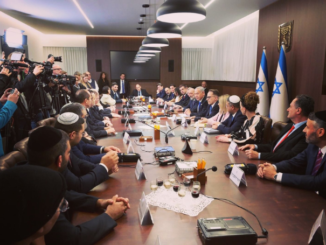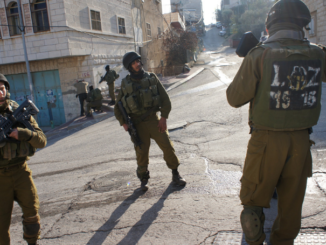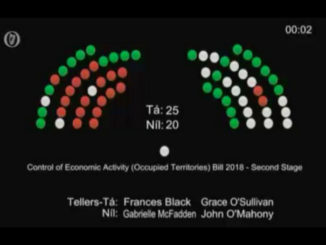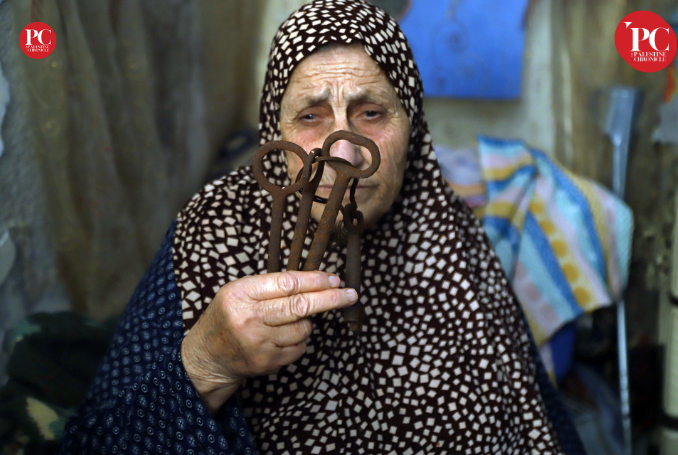
Ibtihaj Dawlah, 89, is a Palestinian refugee living in the Al-Shati Refugee Camp in the besieged Gaza Strip.
She still holds on to the rusty keys to her home, back in Palestine, today’s Israel, 75 years following the Nakba, or ‘catastrophe’, when Israel was established on the ruins of the ethnically-cleansed Palestinian homeland.
Ibtihaj was born in the Palestinian city of Yaffa – Jaffa – to a Palestinian father, hailing from Akka – Acre – and a Lebanese mother.
In 1948, like hundreds of thousands of Palestinians, her family was forcibly displaced from their home during the Nakba.
“I was 14 years old and I was in sixth grade at the time,” Ibtihaj began narrating her Nakba in an interview with the Palestine Chronicle. “I was coming home from school, when we saw trailers carrying people wearing red Arab hats.”
She continued, “Initially, we thought they were members of the Iraqi army, but then, they started shooting at us, injuring my brother. Only later we learned that these were Zionist gangs, trying to expel Palestinians from their homes.”
Although 75 years have passed since that day, the memories of the Nakba are still vivid in Ibtihaj’s mind.
She remembers the details of how her brother was shot, and was only saved from imminent death by his peers who carried him out to safety.
After that incident, she and her family ran towards the port of Yaffa. They were barefoot and carried nothing with them. A small boat carried them and others to Port Said in Egypt, and later, they walked to the Sinai Desert.
“We stayed in Sinai for about a year, then we went to the Maghazi Refugee Camp in the central Gaza Strip,” Ibtihaj says.
“A year later, we reached the Shati camp, where we set up a large tent made of reinforced nylon,” she said. “We were among the first Palestinians to settle in this camp. It took a long time before people began converting their tents to houses of bricks.”
“We had great difficulty getting water, and there was only one bathroom for the entire camp, so we had to stand in very long lines to use it,” Ibtihaj continues.
Ibtihaj also told us that she feels emotional and nostalgic whenever she thinks of Yaffa, the city of oranges, and Akka, her father’s birthplace. Her only wish is to return there.
“I wish to return to Yaffa. I will go back even if I have to crawl.” 



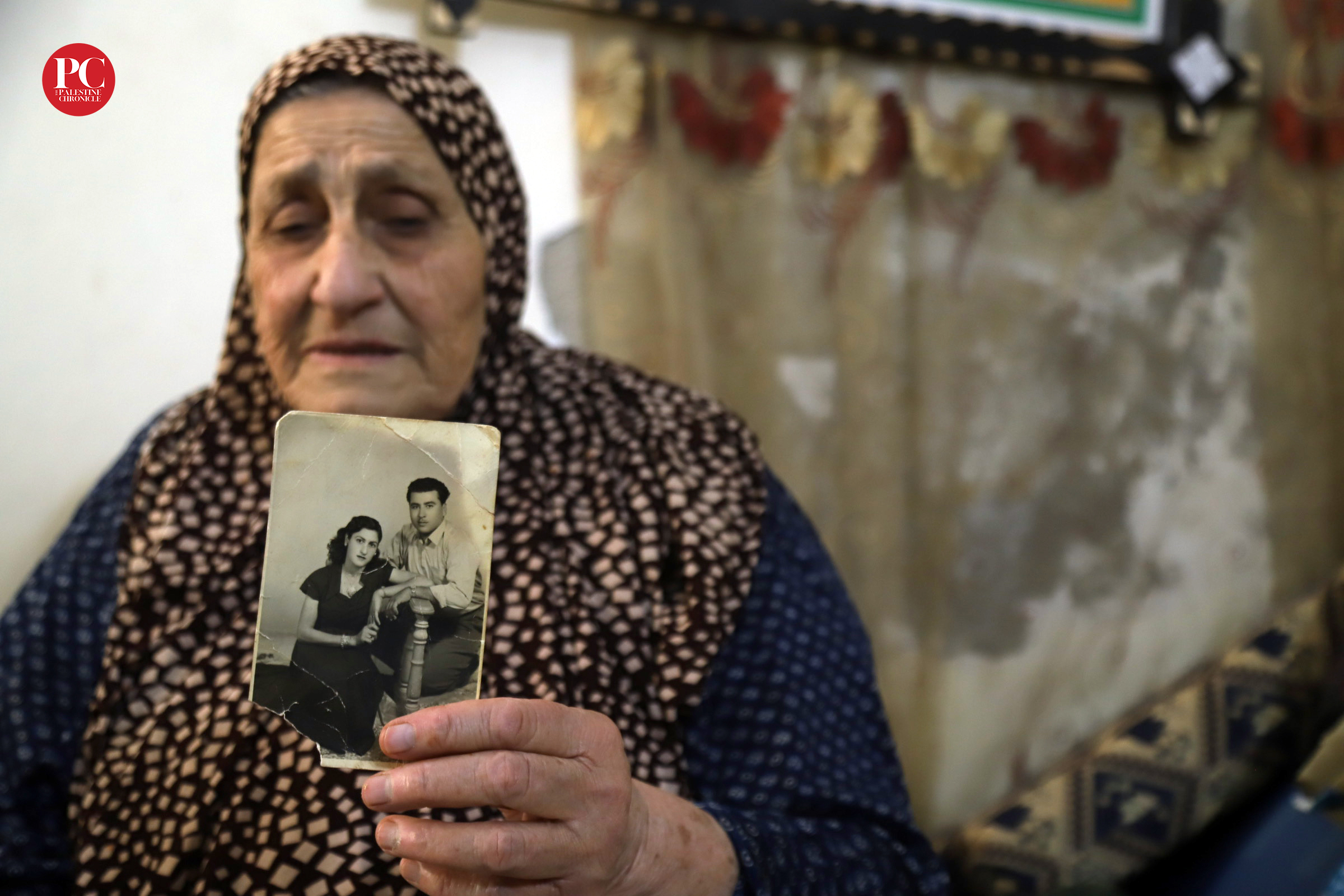

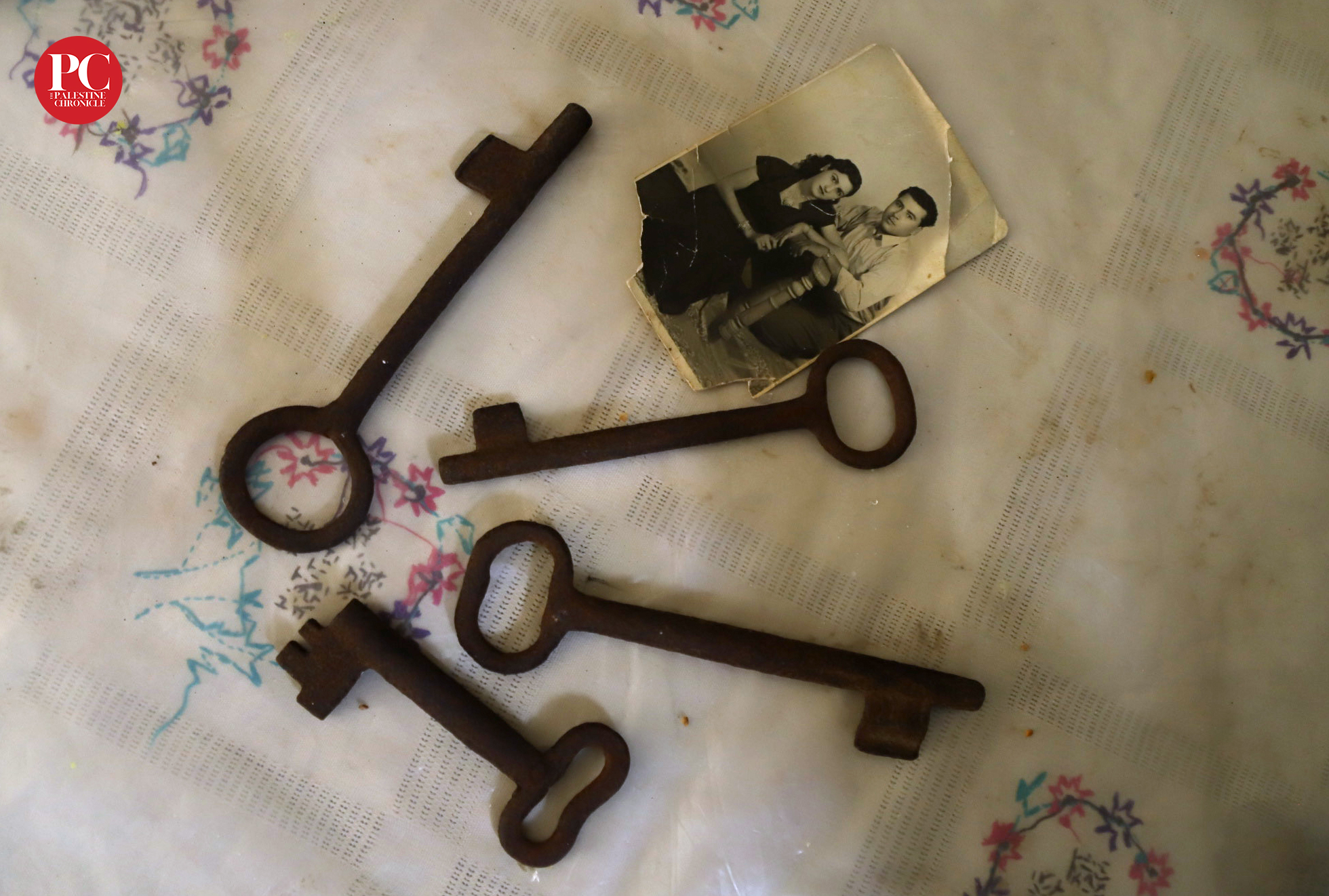
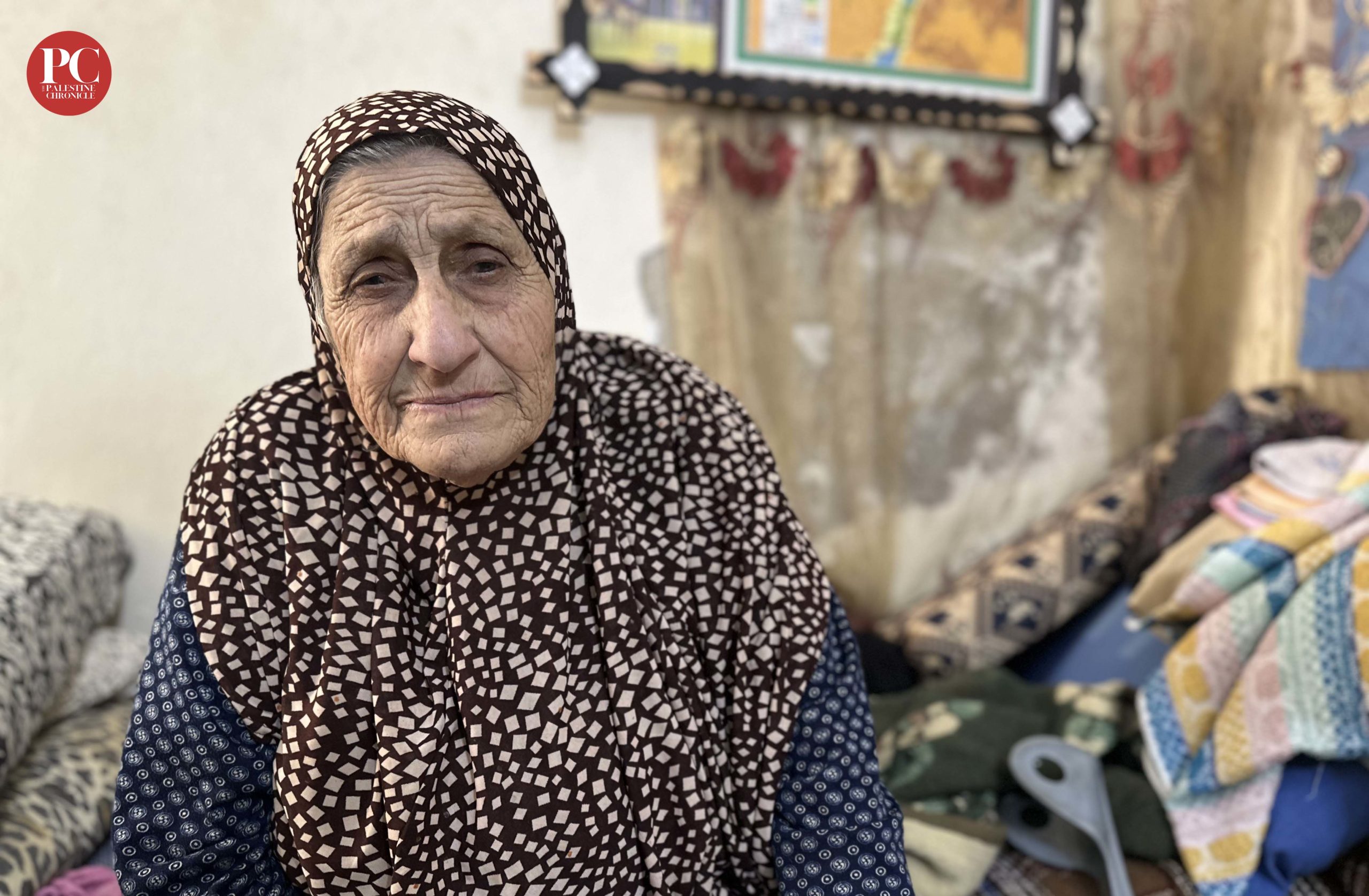
(All Photos: Mahmoud Ajjour, The Palestine Chronicle)




